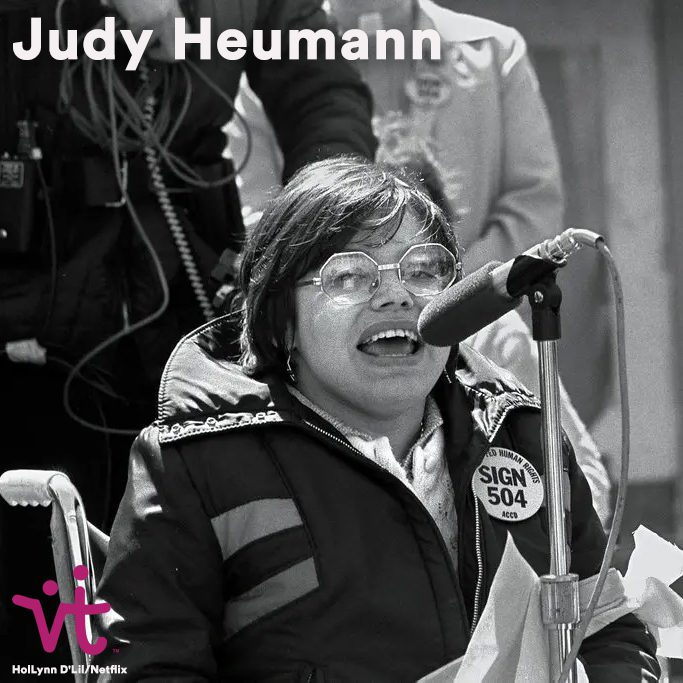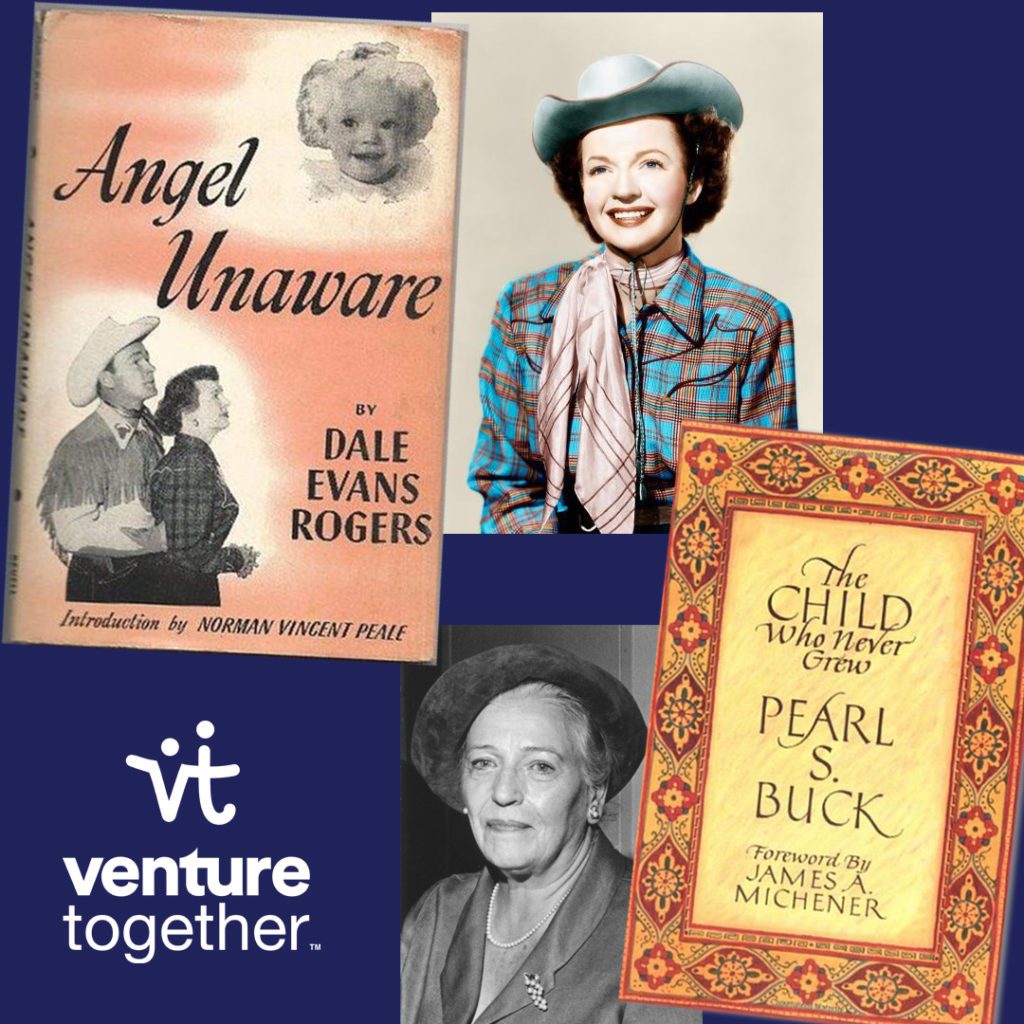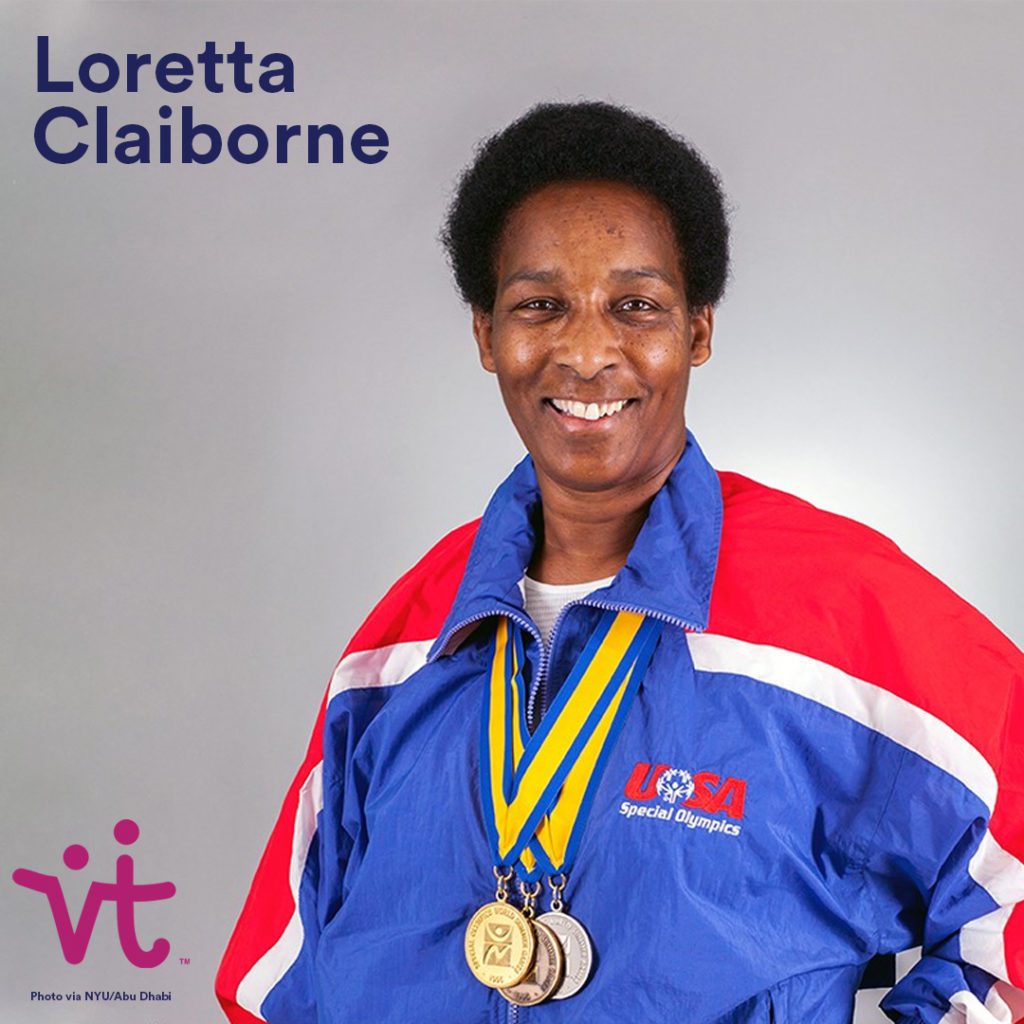In honor of Women’s History Month, every Thursday in March Venture Together will be honoring women who have made important contributions to the disability rights movement.

This week we shine the spotlight on Judy Heumann, who had polio as a child and has spent most of her life in a wheelchair, facing – and then fighting – lifelong discrimination because of her disability. She had to fight to be allowed to attend public schools when she was deemed a “fire hazard” because of her wheelchair. When she was denied a teaching license for the same reason, she sued and won against the New York City Board of Education, becoming the first wheelchair user to teach in NYC.
In 1970, she and several friends founded Disabilities in Action, an advocacy group that focused on political protest as a means of bringing awareness to the emerging disabilities rights movement, leading demonstrations and sit-ins that raised public awareness and political pressure. These efforts (along with those of advocates across the country) led to the eventual passage of the Americans with Disabilities Act in 1990.
In 2010, President Barack Obama appointed Ms. Heumann as Special Advisor on International Disability Rights for the U.S. State Department.
Judy is also featured prominently in the 2020 Academy Award nominated documentary Crip Camp about the upstate New York Camp Jened for children with disabilities.


This week we feature two women whose literary works helped to bring public awareness and empathy to the lives of people with Intellectual/Developmental Disabilities: Pearl S. Buck and Dale Evans Rogers.
Nobel Prize-winning author Pearl Buck, most notably known for her novel “The Good Earth,” penned “The Child Who Never Grew” in 1950. This memoir told the story of her daughter Carol, who was born with PKU, a rare genetic disorder. It is a frank and heartrending look at a parent’s struggle to come to terms with their child’s special needs.
Dale Evans Rogers was a popular Western singer and actress; wife and performing partner of singing cowboy Roy Rogers. When their daughter Robin was born with Down Syndrome, the Rogers were urged by doctors to institutionalize her. They refused, and they also refused to hide Robin from the world, insisting she appear in public and family photos, something that was not done at the time. After Robin passed away at a very young age, Dale Evans wrote the book “Angel Unaware” in 1953 to help her deal with her grief, and to bring public awareness to the lives of people with Down Syndrome. The Rogers remained steadfast and outspoken advocates for disability rights for the rest of their lives.
Both books were very popular in their time, and helped to change public perception of people with I/DD. These changing perceptions, though slow, would eventually lead to greater societal awareness and acceptance, which would eventually lead to movements like deinstitutionalization and the Americans with Disabilities Act, and service agencies like Venture Together.

In honor of Women’s History Month, every Thursday in March Venture Together will be honoring women who have made important contributions to the disability rights movement. For our final post this month, we’re looking at the remarkable, inspirational life of Loretta Claiborne.
Loretta was born in 1953 partially blind and with an intellectual disability; she was unable to walk or talk until age four. Although doctors advised her single mother to institutionalize the girl, she refused, choosing to raise Loretta at home with her other children.
When Loretta was 17, a school counselor suggested she participate in the newly-formed Special Olympics. Loretta first competed as a runner at the Special Olympics of 1970 and continues to participate to this day in multiple sports, including Track & Fields and Figure Skating. She has won multiple gold and silver medals.
She has completed over 25 marathons and has placed in the top 100 women finishers of the Boston Marathon twice. In 2000, Claiborne’s life was the subject of “The Loretta Claiborne Story”, a television film. She has a fourth-degree black belt in Karate. She’s met six US presidents. She serves on the Special Olympics Board of Directors. She’s won the ESPY Arthur Ashe Award for Courage… the list goes on and on.
While still active and participating in Special Olympics, Loretta now chooses to focus her efforts on connecting and inspiring other, traveling the world speaking with groups and advocating for people with intellectual/developmental disabilities.
Watch Loretta’s TEDx Talk here:
